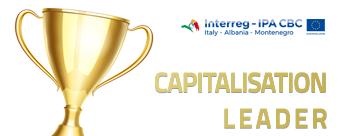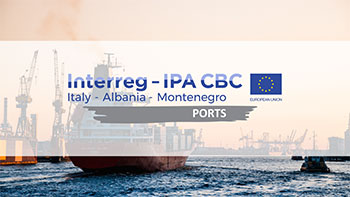
Analyze the state of logistics in the Ionian-Adriatic corridor, identify new potential connections between Taranto, Kotor and Durazzo and highlight the economic and social impact of logistics in the project area. These are just some of the objectives of the mathematical model developed by the Polytechnic of Bari in the last phase of the «PORTS»Project, an acronym for «Partnership for the Observation and Study of new Routes and Transnational Sea-highways». The project, approved and funded by the European Commission through the Cross-Border Cooperation Program "INTERREG IPA CBC Italy Albania Montenegro", aims to strengthen the so-called "motorways of the sea”, the maritime connections among the three countries to support the socio-economic growth of the two main cross-border systems of the coastal area.
On 18 July, on the occasion of the last meeting between the partners such as the Higher Technical Institute for Logistics in Taranto, the Port Authority of Taranto, the Development Program, the "Albanian Institute of Transport" and the "University of Montenegro", the staff of the Polytechnic of Bari led by Prof. Michele Ruta, described to the Joint Secretariat of the Apulia Region the main elements of the mathematical model that will be able to offer public institutions, stakeholders and private companies new strategies to improve, enhance and optimize connections and exchanges through the motorways of the sea.
Among the main expected results, the polytechnic has counted the creation of a map of the intermodal transport network in the project area through the calculation of times, costs, performance, safety and externalities. Results achievable through the collection of a series of data that will come from a direct involvement of the project partners with all the actors in the sector.
"We turn - explained Silvio Busico, president of ITS Puglia Logistics, lead partner of the Ports project - to all those who in some way operate in the world that revolves around maritime exchanges between Italy, Montenegro and Albania to ask for their contribution: public actors and private individuals can contribute through a series of information to study in detail the situation and understand how to improve and reinforce it. We are talking - added Busico - of optimized routes, fuel consumption, but also of infrastructures capable of enhancing our processes and services for welcoming people and goods. Not only. We ask public institutions to be the vehicle of dissemination of this important possibility so that many can join this winning bet for our countries and - concluded the president of the ITS Logistica Puglia - increase dialogue and support the economy by creating new job opportunities ».


